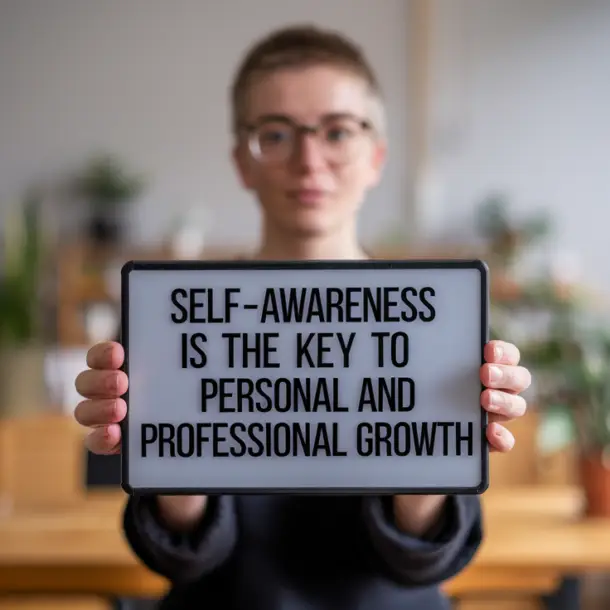
Navigating the Emotional Rollercoaster of Entrepreneurship: Tips for Mental Resilience
Business challenges keep many entrepreneurs, including me, awake at night. My years of working with mental health entrepreneurs have shown me how this business experience can challenge even the strongest minds.
Mental health and entrepreneurship share a complex relationship that people often ignore. Leaders must maintain steady confidence despite uncertainty. They need to manage teams while fighting personal doubts and project success through tough times. Business success demands more than just helpful resilience—it becomes crucial for survival.
This piece offers practical strategies to handle the emotional challenges of running a business. You'll learn practical steps to protect and boost your mental well-being while chasing entrepreneurial dreams. Support systems and crisis management techniques play a vital role in this process.
Understanding the Entrepreneurial Emotional Cycle
The "emotional cycle of change" shapes every entrepreneur's experience in ways we rarely notice. Research paints a clear picture - 72% of us entrepreneurs deal with mental health issues, which is much higher than what you see in the general population.
Identifying emotional triggers in business
My work with fellow entrepreneurs has shown me emotional triggers that affect our mental well-being. Studies highlight distinct emotional stages we go through:
Uninformed Optimism: Dreams fill our minds before we know the challenges ahead
Informed Pessimism: The hard truth hits as obstacles emerge
Valley of Despair: This tough phase makes many entrepreneurs quit
Informed Optimism: Results start showing up with realistic expectations
Common psychological challenges
Entrepreneurship can be a lonely road. Studies show 70% of entrepreneurs feel isolated along the way. We deal with unique pressures daily - 75% of us feel weighed down by others' expectations. The topic of mental health remains taboo in our ecosystem, with 54% avoiding such discussions.
The effect of business stress on mental health
The World Health Organization explains workplace stress as our response when demands exceed our abilities and challenge how we cope. My years of working with entrepreneurs have shown this on the ground - 83% of US workers deal with work-related stress. This stress spills into the home life of 54% workers.
The situation becomes more worrying as stress affects our physical health too. Studies link workplace stress to health problems like hypertension and diabetes. The numbers tell a grim story - workplace stress leads to about 120,000 deaths yearly in the US. These facts highlight why entrepreneurs must take both mental and physical health seriously.
Building Your Emotional Support System
A strong support system plays a vital role in my business experience. Success isn't just about what you know—it's about who you know and who stands by you when things get rough. Studies show that entrepreneurs who work with mentors are five times more likely to start a business successfully.
Creating a professional support network
The most effective support networks blend both online and offline connections. Making meaningful connections can feel overwhelming in today's digital world, but these approaches have worked well for me:
Join industry events
Connect through alumni networks and professional associations
Participate in faith-based or community organizations
Take part in sports leagues or volunteer groups
Finding the right mentor relationship
My business took a different turn when I found the right mentor. You should look for someone who not only has experience but also shares your values and work ethic. A good mentor goes beyond business advice—they provide emotional support and encouragement that we often need.
Leveraging peer groups and communities
Peer groups provide excellent mental health support. Research shows that 90% of small business owners agree that mentors stimulate their success and growth. Entrepreneurial communities create natural connections instead of forced networking opportunities.
These communities give us space to be completely honest about our challenges. We can drop our professional masks and have real conversations about our struggles. These groups often become our personal board of advisors, with founders who face similar challenges and victories.
Note that your support network doesn't need to be huge—it needs to be reliable and trustworthy. Regular meetings and honest conversations create spaces where vulnerability becomes strength and shared experiences lead to collective growth.
Developing Crisis Management Strategies
My experience guiding fellow entrepreneurs has taught me that crisis management goes beyond mere survival. It builds lasting mental resilience. Let me share what I've learned about weathering the storms of entrepreneurship.
Handling business setbacks
Setbacks can paralyze even the most determined entrepreneurs. Success comes from seeing failures as stepping stones instead of roadblocks. Research shows entrepreneurs bounce back faster when they take responsibility for setbacks and look at them objectively. Here are the strategies that worked well for me:
Pause and reflect before reacting
Document lessons learned
Focus on solutions rather than problems
Keep the bigger picture in mind
Managing financial stress
Financial pressure weighs heavily on most of us. Studies show that running a business naturally creates financial stress that affects both work and personal life. Good financial management prevents stress from becoming overwhelming. Entrepreneurs handle financial challenges better when they maintain a clear view of their finances and regularly plan for different scenarios.
Overcoming decision paralysis
Decision paralysis ranks among entrepreneurship's toughest challenges. That overwhelming feeling hits when too many choices stop us from moving forward. Studies indicate that analysis paralysis stems from our fear of making wrong choices. The price of indecision often exceeds the cost of an imperfect decision.
A well-laid-out approach has helped both me and the entrepreneurs I work with. Setting clear deadlines for decisions comes first. Next, we narrow down options early to avoid excessive analysis. Note that indecision causes more losses than wrong decisions do. This method helps me stay mentally healthy while pushing my business forward.
Strengthening Your Emotional Intelligence
Emotional intelligence has become my secret weapon to maintain mental health as an entrepreneur. Research shows that entrepreneurs with high emotional intelligence are more creative, effective and build better connections with their teams.
Self-awareness techniques
My trip has taught me these valuable self-awareness practices:
Daily emotion tracking
Regular self-reflection periods
Body language awareness
Emotional vocabulary expansion
Managing emotional reactions
Understanding how to react to emotions makes them easier to manage. Studies indicate that emotional regulation is especially challenging for younger entrepreneurs. Millennials show lower regulation abilities than older generations. The "pause and process" method works best - you take time to review emotions before responding.
Building empathy in leadership
Empathy has changed the way I lead my team. Research shows that 78% of senior leaders recognize empathy's importance. However, only 47% believe their companies practice it effectively. True empathy begins with genuine curiosity about other people's views. Teams built on empathy create an environment of trust and collaboration.
The sort of thing I love is how gender influences this dynamic. Studies show that male entrepreneurs' confidence in understanding others' emotions decreases with age. This pattern doesn't appear in women entrepreneurs. This insight helps me value my team's different emotional views and adapt my leadership style.
Conclusion
Entrepreneurial success relies equally on emotional resilience and business acumen. Mental health challenges affect most entrepreneurs, yet we often ignore them while pursuing business goals.
A strong support network, crisis management strategies, and high emotional intelligence build the foundation for lasting entrepreneurial success. The evidence is clear - entrepreneurs with mentors are five times more likely to succeed. Leaders who excel at emotional intelligence guide their teams more effectively.
Mental resilience grows stronger with each new challenge. Our capacity to handle future obstacles improves through this continuous growth process. Simple daily practices make a difference. Emotional check-ins, regular mentor meetings, and building team empathy create positive lasting changes.
Being open about our emotional struggles makes us stronger leaders and more successful entrepreneurs. Our business's success soars when we put our mental well-being first. This approach helps us thrive in our entrepreneurial path.
